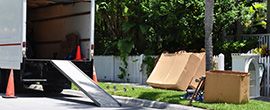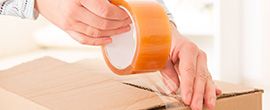If you have decided to, or have been forced to sell your home and move into rented accommodation you may be unsure as to what to expect, especially when it come to your new landlord. If you haven’t lived in rented accommodation for years, or if you’ve never lived in rented accommodation you may know now what you need to be looking for and asking before signing a years lease. This handy guide should help you make your decisions.
The Property:
When you initially go to view the house have a look at the surrounding area as you approach the property, what is it like? When you approach the house, start looking at the condition the property has been kept in, this will give an indication if there is something likely to go wrong soon and also an idea as to where your landlord’s priorities lie.
Ask questions about the property, the agreement and the local area, such as:
• Who is responsible for the maintenance of the house?
• Who do you contact in case of emergency maintenance?
• How quickly will the landlord respond to your calls?
• How quickly will your landlord carry out any maintenance required?
• What security does the house have?
• What is the neighbourhood like? Is it very troublesome?
• How many previous tenants have there been? Is there any way of speaking to previous tenants to ask them why they moved out?
Other useful things you can do is to:
• Ask to look around the property yourself (without the landlord there you may not feel as rushed or pressured).
• Speak to the neighbours and ask them about the house, the landlord, previous tenants and if they ever had any issues with the house or landlord and what the neighbourhood is like.
After viewing the property, if you are still interested consider doing the following:
• View the property at a different time of day: the time of day can make all the difference when viewing a house, and will give you a better feel as to what it would be like to live there.
• Research the neighbourhood by talking to neighbours and reading local newspapers.
• Ask for previous utility bills to give you an idea as to how much you will be paying for gas, water and electricity. Also consider the council tax on the property.
• Check with your car insurance to see if the address would mean an increase in your payments.
• See what the quality of local schools are like if you have children.
The landlord:
The difference between a good and a bad landlord can be the difference between loving your new home and regretting moving there. Landlords have a huge impact on how much you enjoy being a tenant, and you need to pay attention to them from the very start. Consider things like:
• Did s/he arrive on time?
• Was s/he dressed appropriately?
• Did s/he seem honest?
• Did s/he answer questions thoroughly enough?
• Were you given the chance to view the property at your own pace?
• So far, has the landlord been responsive to your calls? Has s/he seemed helpful
Before you sign the lease the landlord should be doing everything within their power to ‘sell’ the property and lease to you, therefore, if they are not making enough effort now, what would they be like as a landlord?
The Lease
Make sure you thoroughly read the lease and understand its content, do not sign anything until you are comfortable with what you are signing. Do not feel pressured into signing a lease hastily, take it away with you and research your rights as a tenant and your landlords duties to ensure the agreement you are signing is in accordance with all of this. Do not be afraid to ask the landlord to change part of the lease before you sign it, they can do this and should be open to negotiations, if they are unmoving at this stage, they perhaps wouldn’t make the best landlord.






